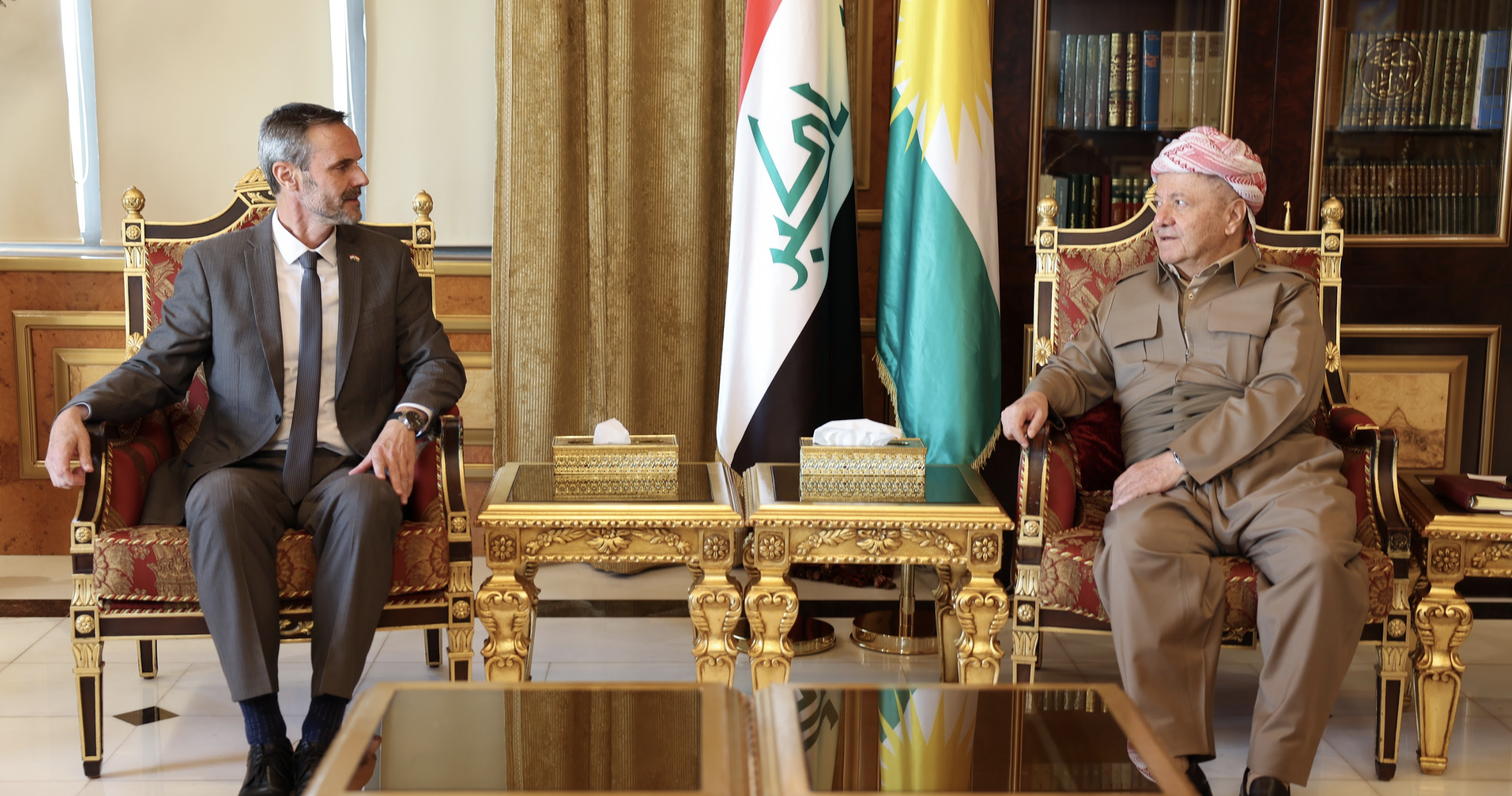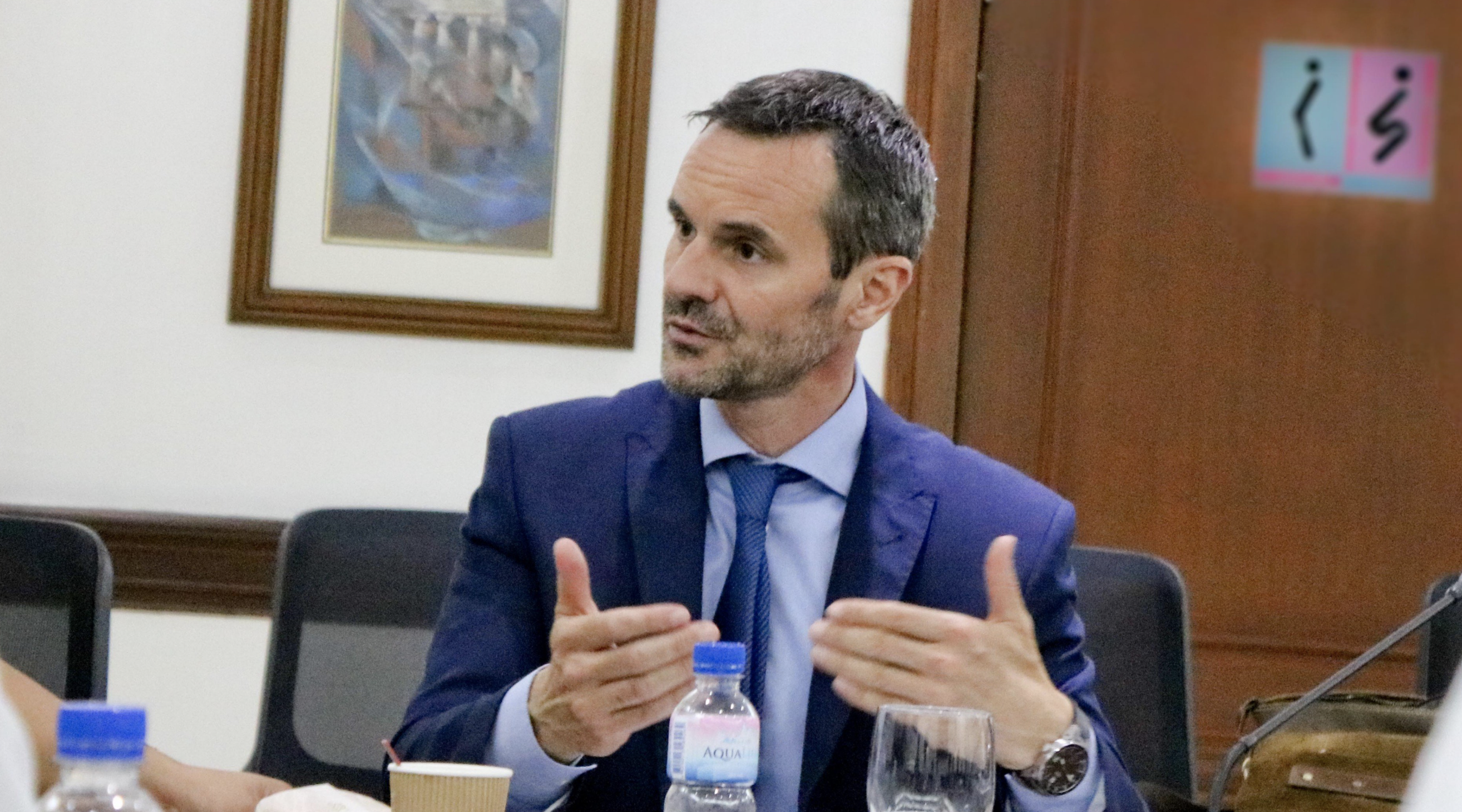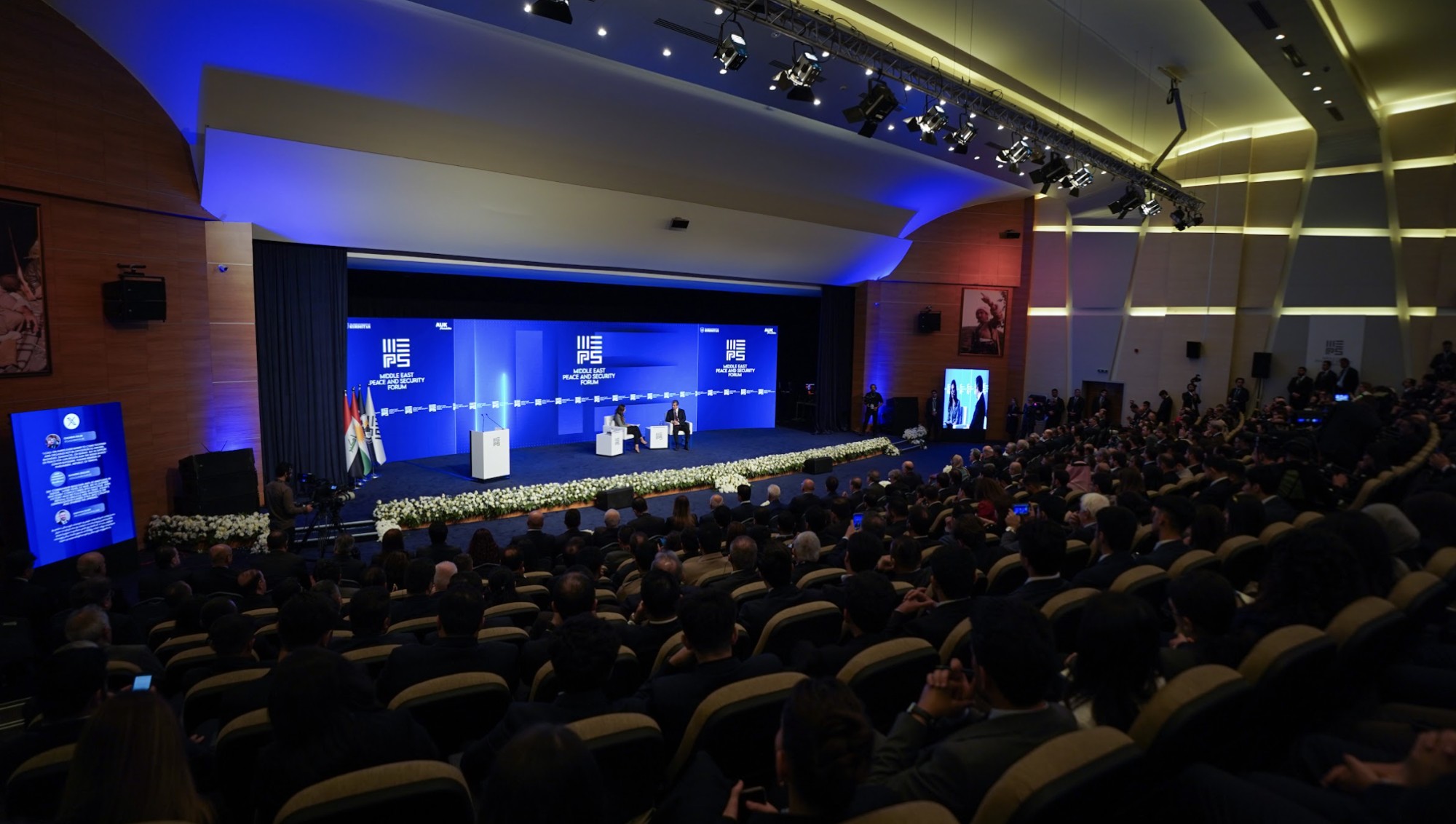In a farewell interview with Kurdistan Chronicle, the outgoing Dutch Consul General in Erbil Jaco Beerends said that what will stay with him most is the warmth of Kurdish hospitality.
“After almost two years in this position, I feel that I am Dutch and also a little Kurdish now. I feel privileged to have met so many people and worked on so many important aspects of our relationship,” he said during his speech at the reception for Dutch King’s Day on April 28.
“Part of Kurdistan is in my heart, a part I will take with me when I end my assignment this summer,” he added.
The Dutch representation in the Kurdistan Region works on supporting private sector development with a focus on youth and agriculture, providing support programs to internally displaced persons, and bolstering the security sector through peshmerga reform and training. It also serve the consular needs of the notably large Dutch-Kurdish population in the Kurdistan Region.

Hospitality
“I had never been in the Kurdistan Region of Iraq before my posting, so for me coming here was quite new and therefore also very interesting,” Consul General Beerends told Kurdistan Chronicle. “The first thing that came to my mind, and that has stayed with me for the full two years that I’ve been here, is the way Kurdish people greet their visitors and guests.”
On his first weekend in Akre, many people invited to him to their homes and restaurants. “They wanted us to visit, and it was always followed by another invitation. There would be food, singing, dancing, and all kinds of hospitality.”
“When you are new to an area, it can feel very unknown, but the people here made it extremely comfortable. That feeling has stayed with me and made a lasting impression,” he added.
Tourism
Consul General Beerends also enjoyed hiking in the Kurdistan Region in his spare time. “Not now when it’s so hot, but in the spring going outside is fantastic,” he said.
However, he mentioned that one of the pitfalls of tourism is the littering in natural areas and that this must be managed. “You come to the most beautiful places here in the Kurdistan Region, and the amount of pollution is sometimes terrible. The plastic here is an especially big problem.”
Nevertheless, Beerends added that the potential for tourism in the Kurdistan Region is quite high, especially from other parts of Iraq and the region. He highlighted the beauty of the northern parts of Kurdistan in the border areas with Turkey and Iran. “They have fantastically beautiful places, also places where it’s a bit cooler in summer and in winter and you have fantastic mountains to explore,” he said.
He noted the renovation of the Kurdish border town of Zakho, known for its iconic ancient bridge, as a good example. “Zakho will attract tourists from a lot of places, as will Halabja, where it’s still quite green. There are other fantastic opportunities in some areas in the summer.”
However, an important condition for the further development of tourism in these areas is stability and security.
Diversification
The Dutch government has been working closely with the Kurdistan Regional Government (KRG) on the diversification of the economy, primarily in the agricultural and private sectors through initiatives like entrepreneurial training program Orange Corners. “It is essential to get people away from government employment and into the private sector,” he underscored.
The Ninth Cabinet of the KRG is currently working on creating a cashless society through banking reforms, digital transformation, and reducing dependence on oil revenue. “I sincerely believe that the government is genuinely working on diversifying the economy. However, many people still depend on the government for their salaries,” he added.
“We have been working with the government to develop agricultural policy, in part by enabling access to the academic knowledge and expertise that is available in the Netherlands. Part of our role is to import expertise from Dutch companies and the private sector into this region by connecting business partners. This not only facilitates trade and investment, but also kickstarts the transformation of knowledge and the creation of jobs,” Beerends argued.

Kurdish unity
The Kurdistan Region will hold parliamentary elections on the newly set date of October 20, elections that have been delayed since 2022 due to disagreements between the Kurdish ruling parties.
Most Western consulates welcomed this new date, including Beerends, who expressed hope that it will foster Kurdish unity and restore legitimacy to government institutions like the Kurdistan Region Parliament. In May 2023, the Federal Supreme Court of Iraq ruled against the Kurdistan Region Parliament’s decision to extend its term, which effectively ended the work of the parliament.
“I hope that with the upcoming elections, a new mandate will be created, providing a fresh start for the authorities in the Kurdish Region of Iraq to regain the power they should have. It is very important to recognize that this region is unique for the Kurdish people. Unlike Kurds in Syria, Turkey, and Iran, the Kurds in Iraq have something quite special: their own autonomous region,” Beerends said.
He also underlined the importance of Kurdish unity. “I hope that, with the elections, new unity can be created, and a new mandate will be established to make a new start for Kurdish autonomy in this region.”
Dutch-Kurds
Many Dutch-Kurds also live in the Kurdistan Region and the Netherlands, which has helped the Dutch Consulate General to build relations and trust. “It’s quite helpful if you have a trusted relationship already that you can build on,” Beerends said.
In the last two years, the Dutch Consulate General has made it possible for Dutch citizens in the Kurdistan Region to renew their passports in Erbil. In the past, they had to renew their passports abroad. He noted that this was just a small step, but it is “something tangible that you can leave behind.”
Modesty
The Dutch people like equality. In July, images of outgoing Dutch Prime Minister Mark Rutte, who spent 14 years in office, riding off on a bicycle went viral. “I think what is very telling about that image of the prime minister on a bicycle is that it is very deeply engraved in Dutch culture that we are very much all the same. We are not about hierarchy,” Beerends shared.
As a result, people in the Kurdistan Region are sometimes surprised when the Dutch Consul General himself opens the door for visitors or brings them a cup of coffee. “They don’t expect that,” he said. “For Dutch people, it’s very normal to do things themselves, to clean up their own messes and handle tasks independently.”
In June, a new government was formed in The Hague that included the anti-immigration PVV party (Party for Freedom) of Geert Wilders, which sparked controversies. Recently, Jordan summoned the Dutch ambassador to explain Wilders’ comments that Jordan is the “real Palestine.”
However, Dutch Consul General Beerends underlined that while Wilders is entitled to his opinions as a member of parliament, his bold statements do not represent the Dutch government. “He has won the elections and is the leader of the biggest party in the Netherlands now. Nevertheless, he is not part of the current Dutch cabinet,” Beerends noted.
“That’s actually the reason why this new government could be formed, because they agreed that it would only work if Wilders and the other heads of the parties that ran in the elections would not be part of the government themselves.”
Gaza conflict
Beerends will move next to the sensitive post of Ramallah in the Palestinian territories amidst the ongoing war between Hamas and Israel, which has affected not only the Middle East, but also the world.
“Our mission in Ramallah is working on programs to see how we can alleviate some of the suffering caused by the war, but that is not easy as long as this war continues,” he said.
Since the start of the war in Gaza, the Kurdistan Region and U.S. bases in Iraq have faced external assaults.
On January 15, an Iranian ballistic missile attack killed four civilians in Erbil, including businessman Peshraw Dizayee and his infant daughter, who was a Kurd from the Netherlands. Other members of the Peshraw family who also hold Dutch nationality were severely wounded. The attack was strongly condemned by the Dutch Ministry of Foreign Affairs.
“This region has deeply felt the consequences of that war, because from the very moment it began, threats have been present through proxies. This conflict has made the entire region more vulnerable to violence. Therefore, it is crucial to resolve the issue between Israel and Palestine, not only to end the enormous suffering in the immediate area, but also for the stability of the wider region and the rest of the world,” he concluded.
Wladimir van Wilgenburg is a seasoned reporter and analyst who specializes in Kurdish affairs, and holds a Master’s degree in Kurdish studies from Exeter University.

